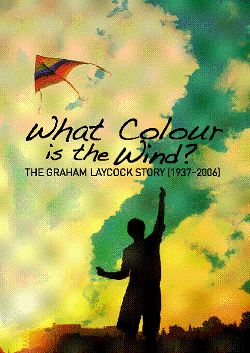 The carnival is back in town and we’ve had another great response this week. It’s always wonderful to see some first timers joining the carnival as well as some of the regulars at their thought provoking best.
The carnival is back in town and we’ve had another great response this week. It’s always wonderful to see some first timers joining the carnival as well as some of the regulars at their thought provoking best.
The weekly Christian Carnival is an opportunity for Christian blog writers to share their best posts from the previous week. The topic of the post doesn’t necessarily have to focus on Christianity but it must reflect a Christian worldview, and the writer must be Christian to qualify.
As always it’s a real honour to be able to present such a diverse range of great posts.
Please take the time to read through each post … it’s worth it. You might also like to link to this week’s carnival so that your blog readers can enjoy the variety of styles and thought.
andriel was first in this week posting A Coming One-World Religious System over at ReturningKing.com.
Annette at Fish and Cans presents a post titled True Woman – a lasting kindness.
Have you wondered about how God does and doesn’t use money? Read what FMF has to say in the post How God Uses and Doesn’t Use Money posted at Free Money Finance.
Yvette Nietzen posted about Having a ready mind at her blog Fresh Wind Ministries.
What’s on at the movies? Shot presents Conservative Movie Reviews | Conunderground.com at Conunderground.com.
Head over to at Fathom Deep: Sounding the Depths of God to read Tiffany Partin‘s post Ladybug and the Great Doodlebug Relocation Project.
According to the Parable of the Talents, we have a responsibility to wisely use the money with which we have been entrusted. With that in mind, ChristianPF asks a tough question. Are you a good steward of God’s money? That post is at Money in the Bible | Christian Personal Finance Blog.
april rose presents like a scarlet letter posted at little april rose.
Dave Quinn wants to article is to encourage Christians with the surety that we carry the same story and power that Peter and John displayed in Acts 4. We carry the story and the power is a powerful read at The PASSION Blog.
Gabe Lopez has written GabeLopezBlog.com: Potential Essentials and posted it at GabeLopezBlog.com.
“I think Solzhenitsyn’s editors have read him carelessly, and have convicted him of a superficial and satanic defense of war and government that he was mocking in the mouth of one of his characters, an Orthodox priest.” That’s what David Gross has to say in his post, Reading Solzhenitsyn at The Picket Line.
Martin Roth presents an exclusive interview with a prominent online Christian dating service that is completely free. ChristianDatingForFree.com – interview with Christian Counseling Services is posted at Christian Counseling Services.
Ken Brown has been, “Thinking about my “terrible two” year old daughter, Jesus’ parables, and justice.” Find out how it all fits together at A Gracious Father or an Unjust Judge? posted at C. Orthodoxy.
Diane R presents a very short post on what Jesus would really do if He walked the earth today asking, What Would Jesus Really Do? over at Crossroads: Where Faith and Inquiry Meet.
Barry Wallace’s pastor’s wife participated in a panel interview on the topic of infertility and adoption. Barry has written Adoption and Infertility: An interview with my pastor’s wife posted at who am i?.
Richard H. Anderson presents The Word of God in Song posted at dokeo kago grapho soi kratistos Theophilos. Richard is wondering if Luther was the first person to use music as a teaching device for religious instruction and/or the first person to use music as a teaching device for any purpose. Richard would appreciate your knowledge or thoughts on the matter.
A Sower presents Anticipation posted at A Sower’s Heart, asking, “Are we like children?”
Shannon Christman has written a post that is not specifically about Christianity, but which raises some questions that Christians should consider in A Child’s Best Friends: The Wonderpets? at The Minority Thinker.
How should we think about parenting responsibilities in terms of the principles that underlie the biblical Sabbath? Jeremy Pierce asks the question and provides some guidance in Parental Responsibilities and the Sabbath posted at Parableman.
At Light Along the Journey John has penned a parable about disappointment, acceptance, & walking with God in his post A Road Trip With Jesus.
michelle presents Joel 2:25-26 posted at Thoughts and Confessions of a Girl Who Loves Jesus….
And finally, Rey presents You Believe That ‘Cause… posted at The Bible Archive, saying the post goes over the genetic fallacy and offering some examples of how it’s been used.
If you’re a Christian and you missed out this week, how about choosing something to contribute for next week’s edition? It doesn’t have to be a masterpiece, just a post that outlines your point of view or is designed to get others thinking. Being part of the carnival could be a great way to gain a little extra traffic at your blog.
The easiest way to get involved is to submit your article through the Blog Carnival Submission Form. Otherwise, you can email the submission address.
Thanks for reading. Don’t forget to spread the word.
Do you think some of your friends would enjoy reading Christian Carnival 274? Please use the buttons below to share the post. Thanks.

 I’ve posted this before but in light of the Easter season I thought it was worth reflecting on again.
I’ve posted this before but in light of the Easter season I thought it was worth reflecting on again. Meditation is a spiritual discipline that is generally associated with eastern philosophies and beliefs and which is often shunned by the Christian church but is there a place for meditation in Christian belief?
Meditation is a spiritual discipline that is generally associated with eastern philosophies and beliefs and which is often shunned by the Christian church but is there a place for meditation in Christian belief? In November 2006, at the age of 69, Graham Laycock passed away while travelling in Thailand.
In November 2006, at the age of 69, Graham Laycock passed away while travelling in Thailand.